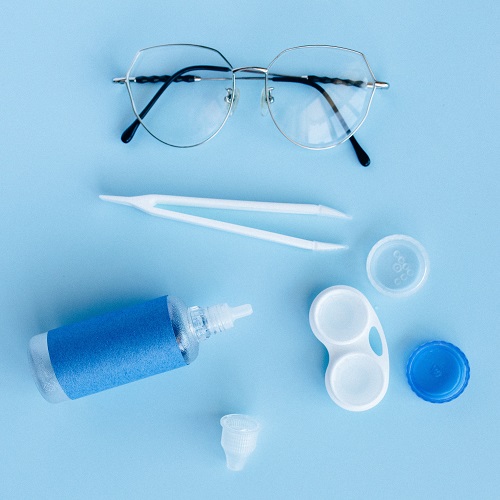Eyesight can change dramatically as we get older. It is a natural part of the ageing process and eye muscles begin to weaken from around the age of 45. This can normally be well controlled with glasses or contact lenses, however many people forget to look after their eyes as they get older. This can have severe effects on their vision.
Our short guide includes possible elderly eye problems to look out for and the best ways for older people to look after their elderly eyes.
Problems in Elderly Eyes
Cataracts, glaucoma, and macular degeneration are the most common eye problems in elderly people. Signs of potential vision loss include:
- • Colours looking washed out.
- • Finding it difficult to judge the depth of steps and kerbs.
- • Straight lines looking wobbly.
- • Difficulty reading, even with glasses or contact lenses.
- • Difficulty driving at night.
Anybody who experiences any of these symptoms should book an appointment with an optician or their GP.
Cataracts
Cataracts occur when the lens of the eye becomes progressively opaque – generally as we age – and causes blurred vision. Glasses can help to correct vision but surgery is commonly required to replace the lens with an artificial one.
Cataracts develop over many years so symptoms may not be noticeable at first. It can develop in both eyes, but each eye may be affected in different ways. Common things to look for include:
- • Blurred, cloudy, or misty vision.
- • Bright lights being uncomfortable to look at.
- • Colours looking faded.
- • Double vision.
- • A halo (circle of light) around bright lights such as street lights.
Fortunately, cataracts are not painful and will not irritate the eye. However, if cataracts are not addressed they could lead to blindness.
Glaucoma
Glaucoma is a disease of the eyeball which causes a rise in pressure and damages the optic nerves. It can cause loss of vision or even blindness if not detected early enough. There are four different types of the condition, the most common of which is ‘Primary Angle Closure Glaucoma’.
Glaucoma develops over many years, and usually the first symptom is a loss of peripheral vision. Other symptoms include:
- • Red eye.
- • Headaches.
- • Tenderness around the eye.
- • Blurred vision.
- • Sickness.
Macular Degeneration
Age-related macular degeneration (AMD) is an eye condition that causes the deterioration of the macular, which is the part of the eye responsible for central vision. There are two types of AMD:
- Dry AMD – When the cells of the macula become damaged by a build-up of deposits called drusen. This is the most common and least serious type, with vision loss occurring over many years.
- Wet AMD – Develops when abnormal blood vessels form underneath the macula and damage its cells. Without treatment, vision can deteriorate within days.
Looking After Elderly Eyes
Eye conditions can be prevented or slowed down by making some simple lifestyle changes.
Get Your Eyes Tested
This is the most important way to look after elderly eyes. An optician check-up is not just to check that your glasses are the correct prescription. It also checks the health of your eyes. An eye test will pick up all of the above eye diseases and any other eye issues you may have as well as other health problems such as diabetes.
The good news is that over-60s qualify for a free eye test every two years and over-70s can have a yearly eye test free of charge. If you’re unable to leave your home, a home eye appointment can be arranged.
Eat the Right Foods
Eating a balanced diet will improve your general health but eating specific foods will improve your eyesight and eye health. Leafy greens such as spinach and kale are packed with antioxidants that lower the risk of diseases such as macular degeneration. Eating oily fats such as fish and nuts can also help to reduce the risk of dry eye syndrome, common in older people.
Stop Smoking
Smoking can increase your risk of developing cataracts and macular degeneration. We have some tips to help people quit smoking.
Improve the Lighting in Your Home
According to NHS Live Well, we need three times as much light to see well when we’re 60 than we do at 20. Make use of natural lighting and keep curtains drawn back during daylight hours and read in areas close to the window. You should also use a lamp directed at where you are working and make sure you have suitable overhead lights in areas where you are most likely to fall e.g. on the stairs.
Limit Your Time Looking at Screens
Spending too long staring at computer or iPad screens every day can cause eye strain and focusing problems as well as an array of neck and back issues. People should take regular breaks from their screens. Consider going on a walk or doing some chores around the house.
The above will help to decrease the risk of eye problems and manage existing elderly eye problems. However, we suggest always seeing a doctor or optician if you have any concerns.
If you’re looking for a Telecare Alarm and need further information please visit our Contact Us page or give our team a call for free on 0800 635 7000 today.
Editor’s Note: This article was updated on 27th February 2024 to reflect current information.




